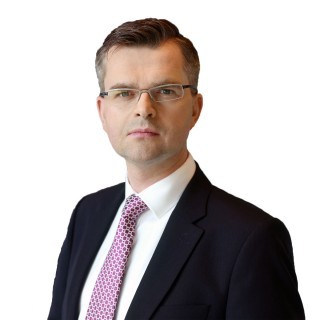Poland to embark on EU’s circular economy strategy – new burden or opportunity?
The European Commission has just published the new Circular Economy Action Plan. We believe that – in contrast to its coal-based energy sector – Poland’s starting position for a transition towards a resource-efficient economy is much better than for energy transformation. And the country could become a leader in implementing circular solutions
The European Commission (EC) is firmly sticking to the timeline of the European Green Deal and has just published the new Circular Economy Action Plan. The document envisages a broad policy agenda: a sustainable product policy framework, a reduction of waste, and interventions across key product value chains. The latter covers: electronics and ICT, batteries and vehicles, packaging, (micro)plastics, textiles, construction and buildings, and food, water and nutrients. The EC will enhance the implementation of the requirements of extended producer responsibility and consumers are to attain a true ‘right to repair’. This should enable easier and cheaper replacement of particular parts when needed. Also, the creation of an EU market for secondary raw materials is to promote the use of recycled content in products. Naturally, as almost all EU action plans, concrete policy measures and their effective implementation will depend on policy measures and tangible solutions of each member state.
Will Poland win or lose from the new circular economy package?
It's worth differentiating the perspectives of consumers, firms, and policymakers. Meeting higher product standards and extended producer responsibility should translate into higher costs and prices if linear processes are maintained. Consumer surveys suggest Polish people are broadly aware of environmental problems and stand ready to change behaviour but see the main responsibility on the producers' side.
Firms will face adjustment costs and investments that they'll need to undertake. But changes in relative prices could be perceived as corrections of current market imperfections when externalities are not priced in adequately. Also, given that the Circular Economy (CE) is a strategic theme for leading global companies, the pressure to adopt circular practices will grow (see, e.g. the representation in the CE100 initiative or business representation in the German steering committee of the CE Initiative). Their Polish business partners or subcontractors will either have to follow the CE direction or risk dropping from their value chains.
From a policy perspective - in contrast to its coal-dominated energy sector profile - Poland’s starting position for a transition towards CE is much better than for energy transformation. We believe Poland has a lot to gain on its proactive approach to the CE policy agenda and may serve as a leader rather than laggard among the EU member states. Polish households generate one-third less municipal waste per capita than the average European, and the share of typical CE sectors in GDP (repairs, reuse, recycling, renting, leasing) is higher than the EU average. With memories of a not-so-distant past, consumers generally have a positive attitude to reusing and repairing things and not wasting food. The Poles are also open to increasingly popular product-as-a-service opportunities and benefit from other CE business models. At the same time, the country lags behind the EU average on selective collection and recycling of municipal waste, recycling in packaging and circularity of recycled materials. The EU policy agenda could mobilise internal policy action and help with its multi-sector coordination.
This publication has been prepared by ING solely for information purposes irrespective of a particular user's means, financial situation or investment objectives. The information does not constitute investment recommendation, and nor is it investment, legal or tax advice or an offer or solicitation to purchase or sell any financial instrument. Read more
Download
Download article
